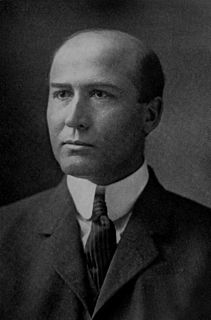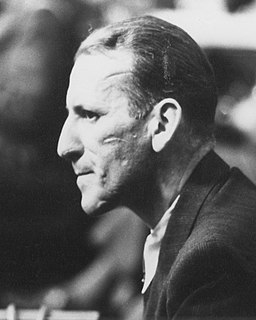A Quote by John Kenneth Galbraith
The years of the Great Depression were a superb time for economists because people not knowing what could be done or what should be done would always assume that maybe an economist had the answer. If you were just a lawyer in Washington, you were nobody. But if you were an economist, you might have the answer.
Related Quotes
Not a single one of the doctrines of Marx has ever been accepted by any economist or any philosopher. But what of it? It was necessary that Gaiseric should convince economists or philosophers that there were sound reasons why he should capture Rome. He and his followers wanted it, and they had the power to take it.
We can see now that we Americans were caught unprepared, because we were ordinary human beings, following the best advice we had at the time. No one would have guessed in 1941 that we would be attacked in such an unsportsmanlike manner as we were. No one could have visualized Pearl Harbor, either out there or in Washington. But if we had known then what we know now, we would have expected an attack in 1941.
I have a very close friend who is a brilliant clown, and I always wanted to do a show with him. So I did one year at La MaMa Theatre. I had not done stilts before that show, and I had about two weeks to learn how to do that, and they were just made with off-off Broadway money. The ones that I had in Rogue One were made by [Industrial Light & Magic]. So they were really easy. They were made with actual prosthetic feet on the bottom. They were athletic, in a way. I could run in them. There was a bounce to them that I could use.
She had asked: What is he? A friend or an enemy? The alethiometer answered: He is a murderer. When she saw the answer, she relaxed at once. He could find food, and show her how to reach Oxford, and those were powers that were useful, but he might still have been untrustworthy or cowardly. A murderer was a worthy companion. She felt as safe with him as she'd done with Iorek Byrnison the armoured bear.
Economics, over the years, has become more and more abstract and divorced from events in the real world. Economists, by and large, do not study the workings of the actual economic system. They theorize about it. As Ely Devons, an English economist, once said in a meeting: 'If economists wanted to study the horse, they wouldn't go around and look at horses. They'd sit in their studies and say to themselves, `What would I do if I were a horse?' '
We were not having any fun, he had recently begun pointing out. I would take exception (didn't we do this, didn't we do that) but I had also known what he meant. He meant doing things not because we were expected to do them or had always done them or should do them but because we wanted to do them. He meant wanting. He meant living.





































